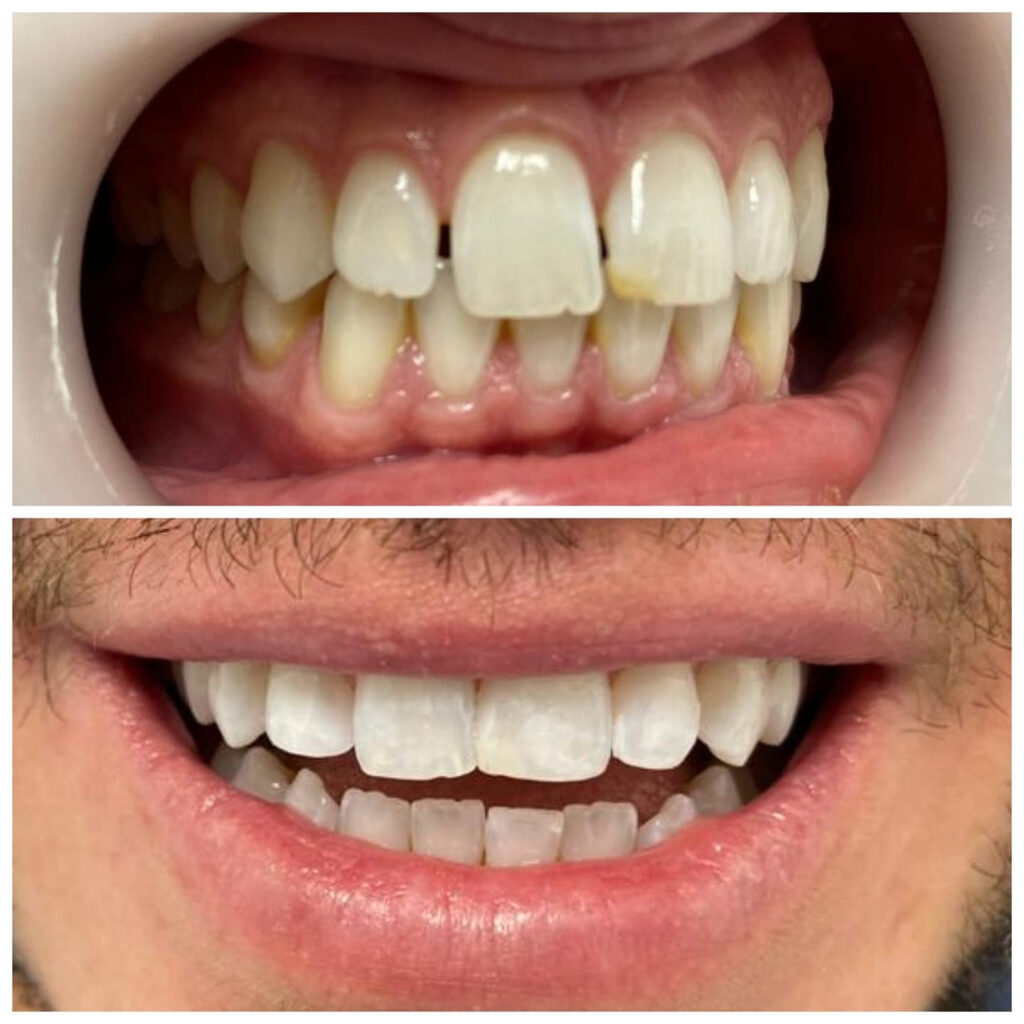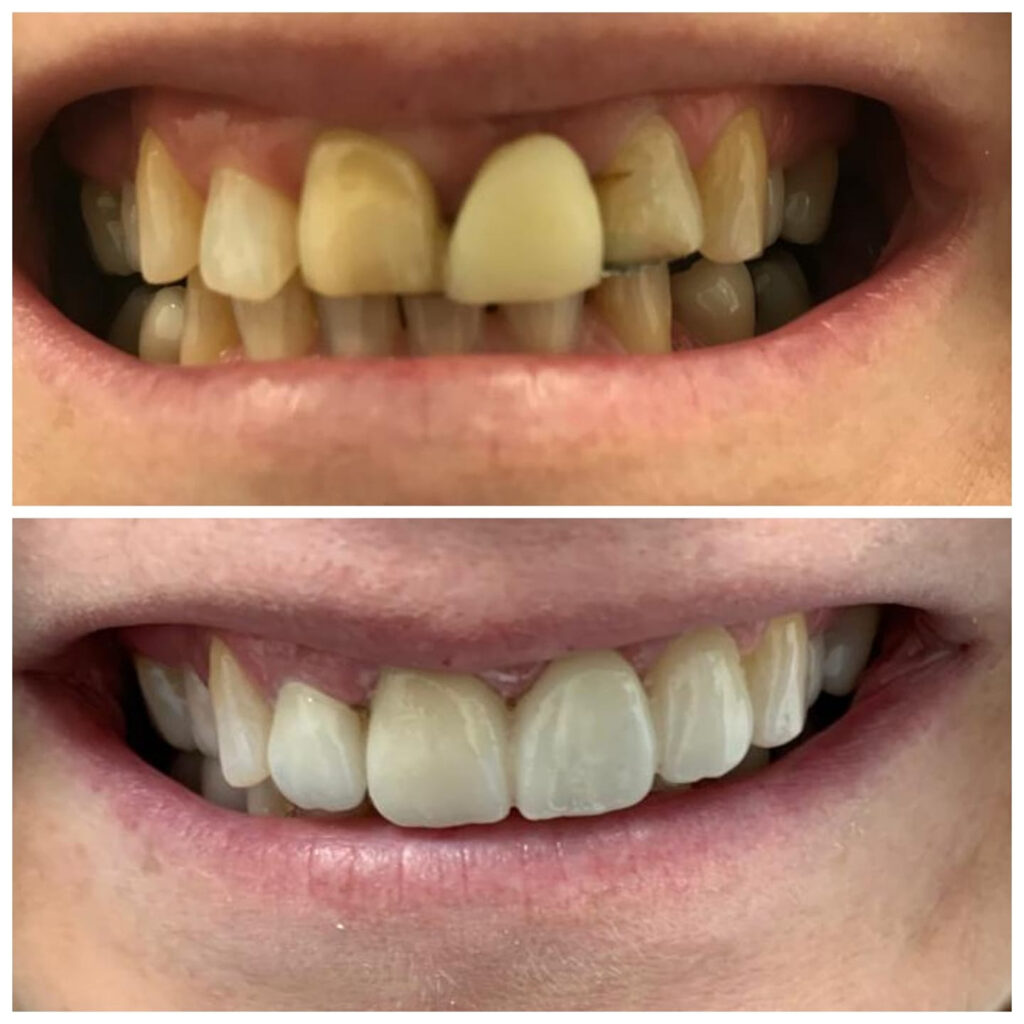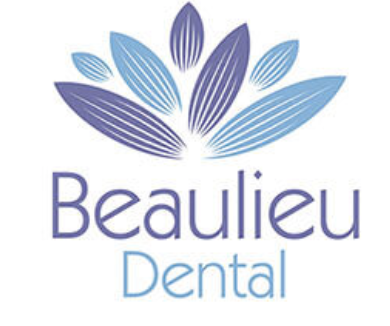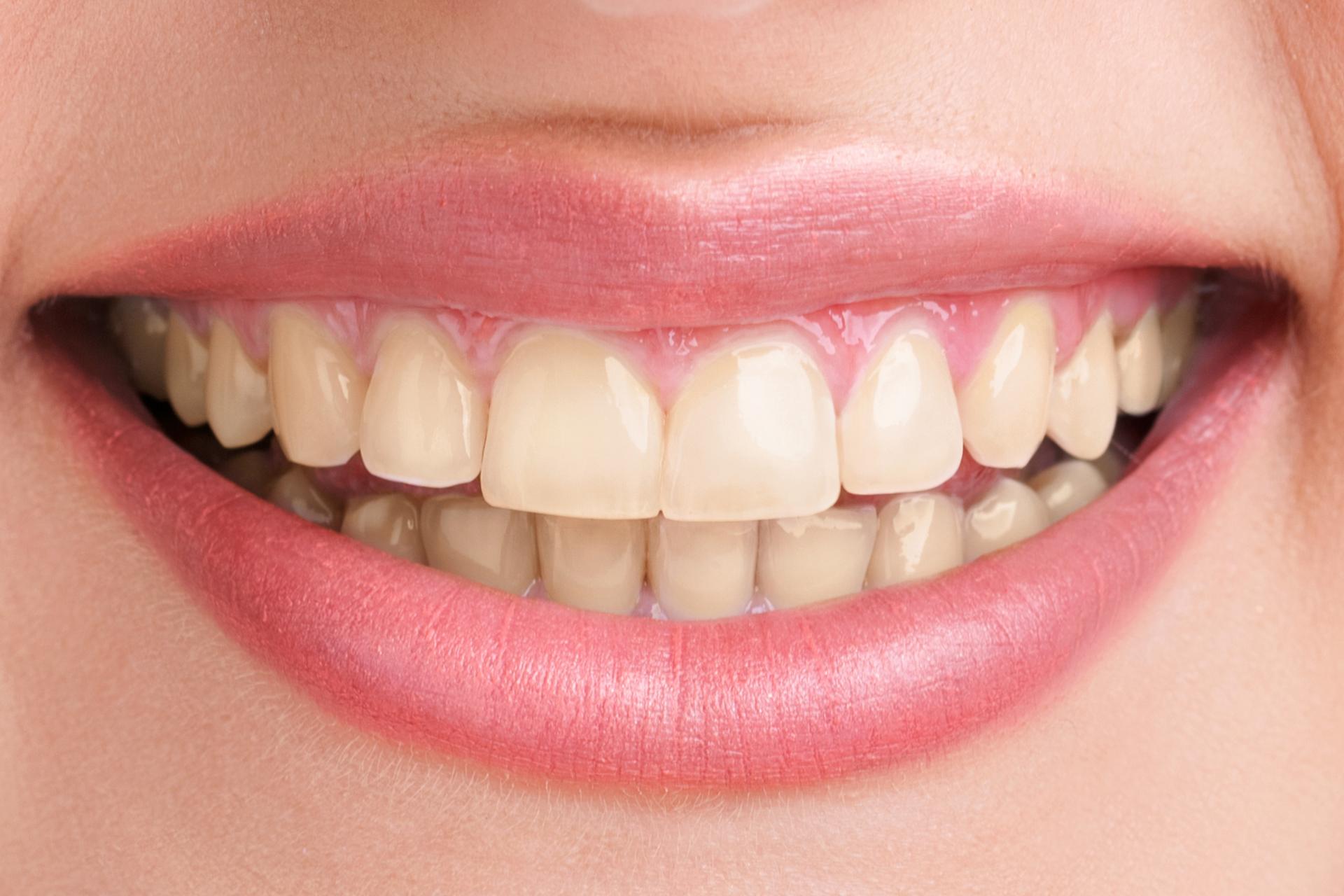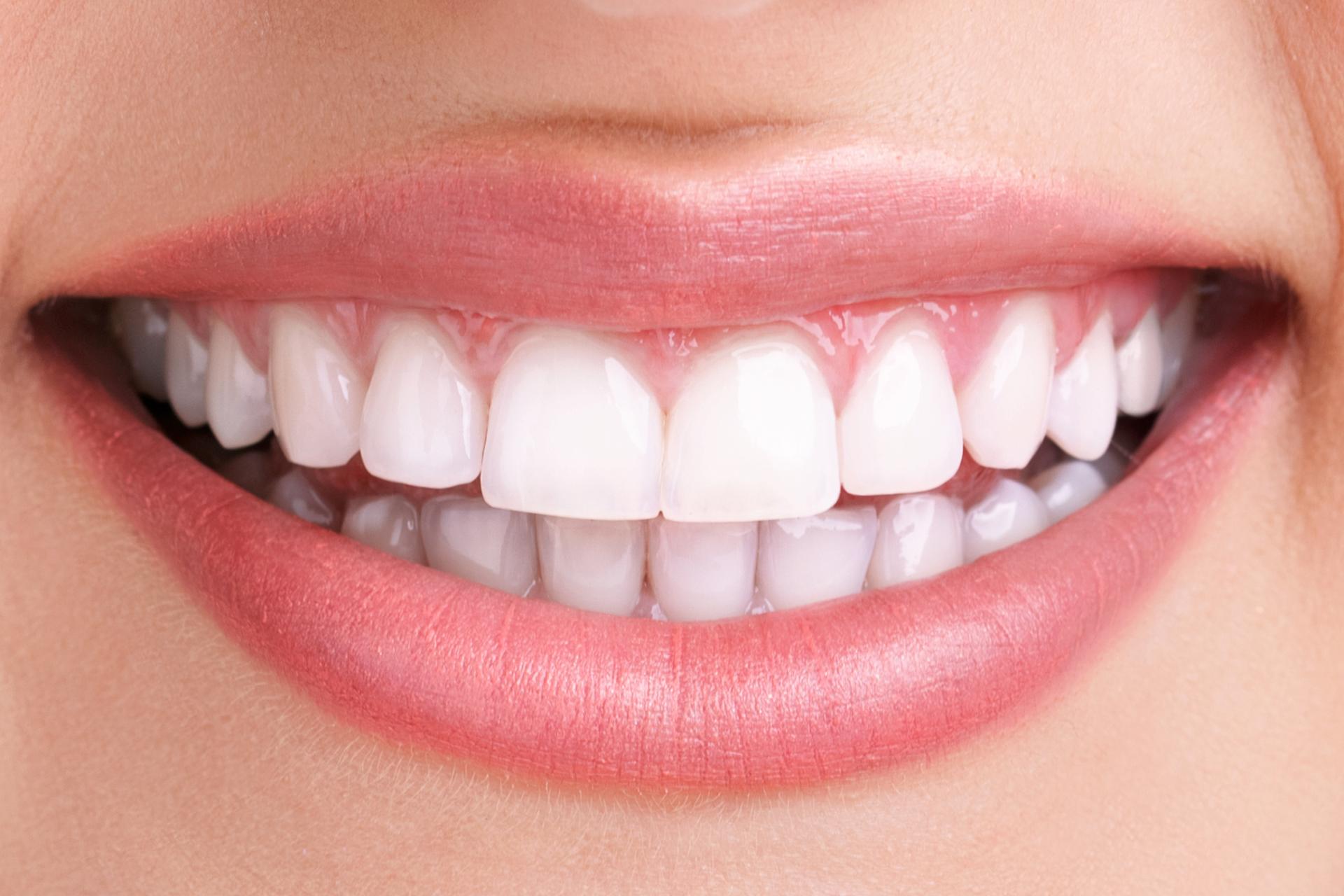Boutique By Night whitens your teeth as you sleep, with the trays being worn overnight. It is designed for people who want great results without the inconvenience of wearing trays during the day.
Teeth Whitening £299
Tooth whitening can be a very effective way of lightening the natural colour of your teeth without removing any of the tooth surface. It cannot make a complete colour change, but it may lighten the existing shade.
There are a number of reasons why you might get your teeth whitened. Everyone is different; and just as our hair and skin colour vary, so do our teeth. Very few people have brilliant-white teeth, and our teeth can also become more discoloured as we get older.
Your teeth can also be stained on the surface by food and drinks such as tea, coffee, red wine and blackcurrant. Smoking can also stain teeth. ‘Calculus’ or tartar can also affect the colour of your teeth. Some people may have staining under the surface, which can be caused by certain antibiotics or by tiny cracks in the teeth which take up stains.
Professional bleaching is the most usual method of tooth whitening. Your dental team will be able to tell you if you are suitable for the treatment and will supervise it if you are. First the dental team will put a rubber shield or a gel on your gums to protect them. They will then apply the whitening product to your teeth, using a specially made tray which fits into your mouth like a mouthguard.
The ‘active ingredient’ in the product is usually hydrogen peroxide or carbamide peroxide. As the active ingredient is broken down, oxygen gets into the enamel on the teeth and the tooth colour is made lighter.
The total treatment can usually be done within three to four weeks. First, you will need two or three visits to the dentist. Your dental team will need to make a mouthguard and will take impressions for this at the first appointment. Once your dental team has started the treatment, you will need to continue the treatment at home. This means regularly applying the whitening product over two to four weeks, for 30 minutes to one hour at a time.
However, there are now some new products which can be applied for up to eight hours at a time. This means you can get a satisfactory result in as little as one week.
Charges will vary from practice to practice and region to region. Laser or power whitening will be more expensive than professional bleaching. We recommend you get a written estimate of the cost before you start any treatment.
The effects of whitening are thought to last up to three years. However, this will vary from person to person. The effect is less likely to last as long if you smoke or eat or drink products that can stain your teeth. Ask your dental team for their opinion before you start the treatment.
Some people may find that their teeth become sensitive to cold during or after the treatment. Others may have discomfort in the gums, a sore throat, or white patches on the gum line. These symptoms are usually temporary and should disappear within a few days of the treatment finishing.
If any of these side effects continue you should go to your dentist.
There are many home whitening kits available, including paint-on whiteners and strips. How effective these are depending on the amount of whitening agent they contain.
Home kits are cheaper but they are not always assessed for safety and tend to be more acidic. So, there is a chance that these products could damage your teeth and gums. Because tooth whitening is a complicated procedure, we advise that you always talk to your dentist before starting the treatment.
Regulations covering home kits vary from country to country. Kits sold in Europe cannot legally contain more than 0.1% peroxide and this is too little to be effective. In other countries where stronger peroxide is allowed, home whitening is more common. But you need to be careful as some kits sold over the internet may contain mild acids and abrasives.
In Europe and in some other countries whitening can only legally be carried out by a dentist. So, tooth whitening by beauticians and in whitening kiosks is illegal. In Europe, it is illegal to supply bleaching material containing more than 0.1% peroxide (or the equivalent in carbamide peroxide) to anyone other than a dentist, or direct to the public.
These regulations are to protect the public. They make sure that anyone carrying out whitening is properly trained and has the right skills and knowledge to carry out the procedure without risking permanent damage to the teeth or gums.
There are several whitening toothpastes on the market. Although they do not affect the natural colour of your teeth, they may be effective at removing staining. Therefore, they may improve the overall appearance of your teeth. Whitening toothpastes may also help the effect to last once your teeth have been professionally whitened.
Yes. Sometimes dead teeth go discoloured after a root filling. If the tooth has been root treated, the canal (which contained the nerve) may be reopened. The whitening product is applied from the inside to whiten the tooth.
Tooth whitening can only lighten your existing tooth colour. Also, it only works on natural teeth. It will not work on any types of ‘false’ teeth such as dentures, crowns, and veneers.
If your dentures are stained or discoloured visit your dental team and ask for them to be cleaned.
You can help to keep your teeth white by cutting down on the amount of food and drinks you have that can stain teeth. Don’t forget, stopping smoking can also help prevent discolouration and staining.
We recommend the following tips to take care of your teeth:
• Brush your teeth last thing at night and at least one other time during the day, with a fluoride toothpaste.
• Cut down on how often you have sugary foods and drinks.
• Visit your dental team regularly, as often as they recommend.
Before And After
